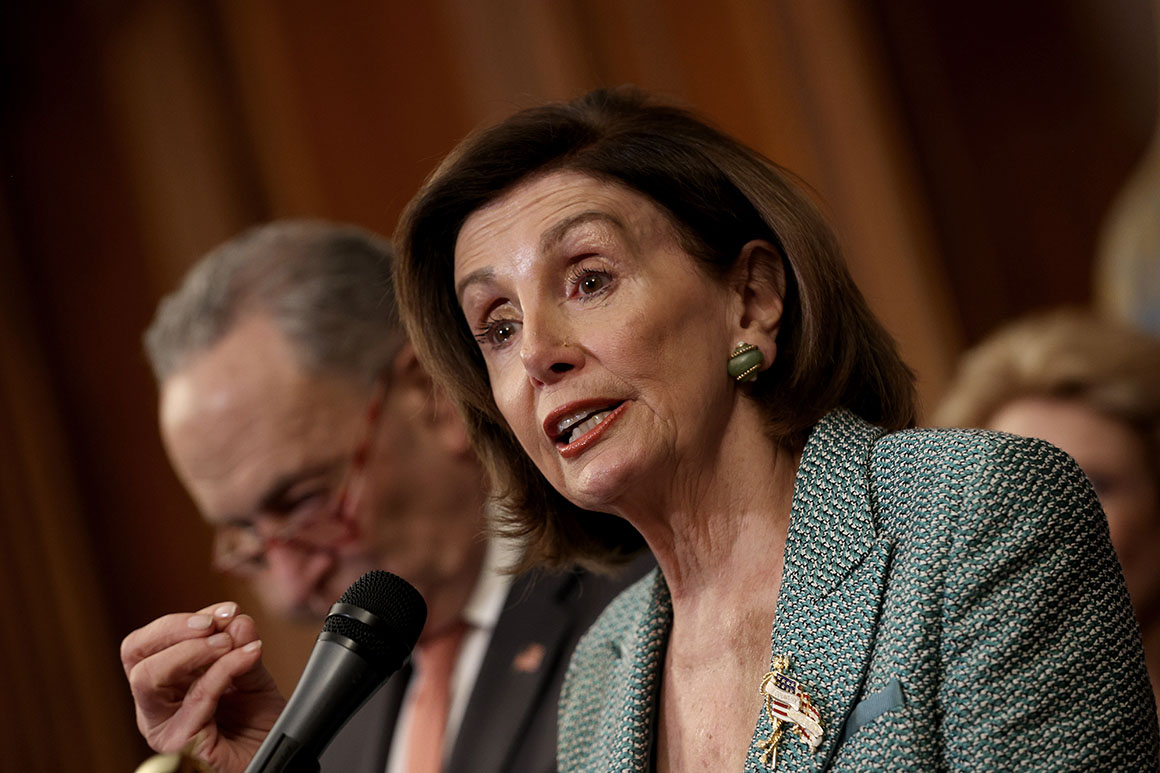
“I won’t be addressing that,” Pelosi said after exiting the top-secret session.
“My concern has nothing to do with this hearing — this presentation,“ Pelosi added. „My concern is what the social media companies and platforms are not doing to prevent foreign governments from causing chaos in our elections.”
The House briefing with senior intelligence officials was followed by one in the Senate later in the afternoon. But House Democrats were particularly eager to hold the briefing after Trump’s shakeup of the leadership of the intelligence community.
Democrats had initially anticipated that Ric Grenell, Trump’s newly installed acting director of national intelligence who lacks any experience in the intelligence community, would be among the briefers. But his office issued a statement earlier Tuesday indicating it „did not communicate to Congress at any point that Acting DNI Grenell would participate in election security briefings.“
Instead, his office was represented by William Evanina, the top counterintelligence official in the Office of the DNI. Other briefers included FBI Director Christopher Wray, Assistant Attorney General John Demers, acting DHS Secretary Chad Wolf, Homeland Security Cybsersecurity Director Christopher Krebs, NSA Director Paul Nakasone and Assistant Secretary of Defense Kenneth Rapuano.
Trump sought to undermine the briefing before it began, tweeting derisively that it was „another Russia, Russia, Russia meeting“ and asserting incorrectly that it was being led by House Intelligence Committee Chairman Adam Schiff (D-Calif.). „I wouldn’t expect too much!“ Trump wrote.
Republicans in the House and Senate disputed Democrats’ contention that the briefings lacked detail.
The officials “constructed an unbelievable architecture for election security, so if they were going to the hearing to get briefed on election security, they couldn’t have walked away and said, ‘There are holes in this,’” said Senate Intelligence Committee Chairman Richard Burr (R-N.C.). “We’ve got detection equipment on systems in every state. There’s a level of cooperation that didn’t exist in ’16 that exists with everybody in ’20. And it’s been tested in ’18. I don’t know how anybody could walk away and say ‘Here’s a hole’ other than a criticism that we haven’t spent enough money.”
Rep. Michael Waltz (R-Fla.) said intelligence officials indicated Russia was working actively to sow discord among Americans on a host of divisive subjects, from racial tensions to gun rights to abortion. When the issue of Russia’s preference for a particular candidate came up, Waltz said, the officials “went into specifics on it” but were “very clear that it was classified.”
Sen. Mike Rounds (R-S.D.) also said the briefers “definitely shared specifics.” And Sen. James Lankford (R-Okla.), a member of the Senate Intelligence Committee, disputed House Democrats’ contention that the briefing lacked substance.
“They were very specific with us,” he said. “When we asked specific questions, we got specific answers on what they’re doing on 2020.”
But House Democrats vented that the closed briefing appeared to contradict the message intelligence officials reportedly delivered to the House Intelligence Committee last month: that Russia had developed a preference for Trump’s reelection.
At Tuesday’s briefing, the lawmakers said, intelligence community officials weren’t explicit about Russia preferring any particular candidate, describing the evidence as inconclusive and differentiating between Russia’s intentions and Putin’s, which prompted Pelosi to wonder about why they drew the distinction.
Democratic lawmakers exiting the briefing were mostly tight-lipped, given its classified nature, but still voiced concerns.
Rep. Jim Langevin (D-R.I.) said intelligence officials spoke in „generalities,“ while Rep. Mike Quigley (D-Ill.), a member of the Intelligence Committee, simply called it „pretty useless.“
Source: politico.com
See more here: news365.stream






